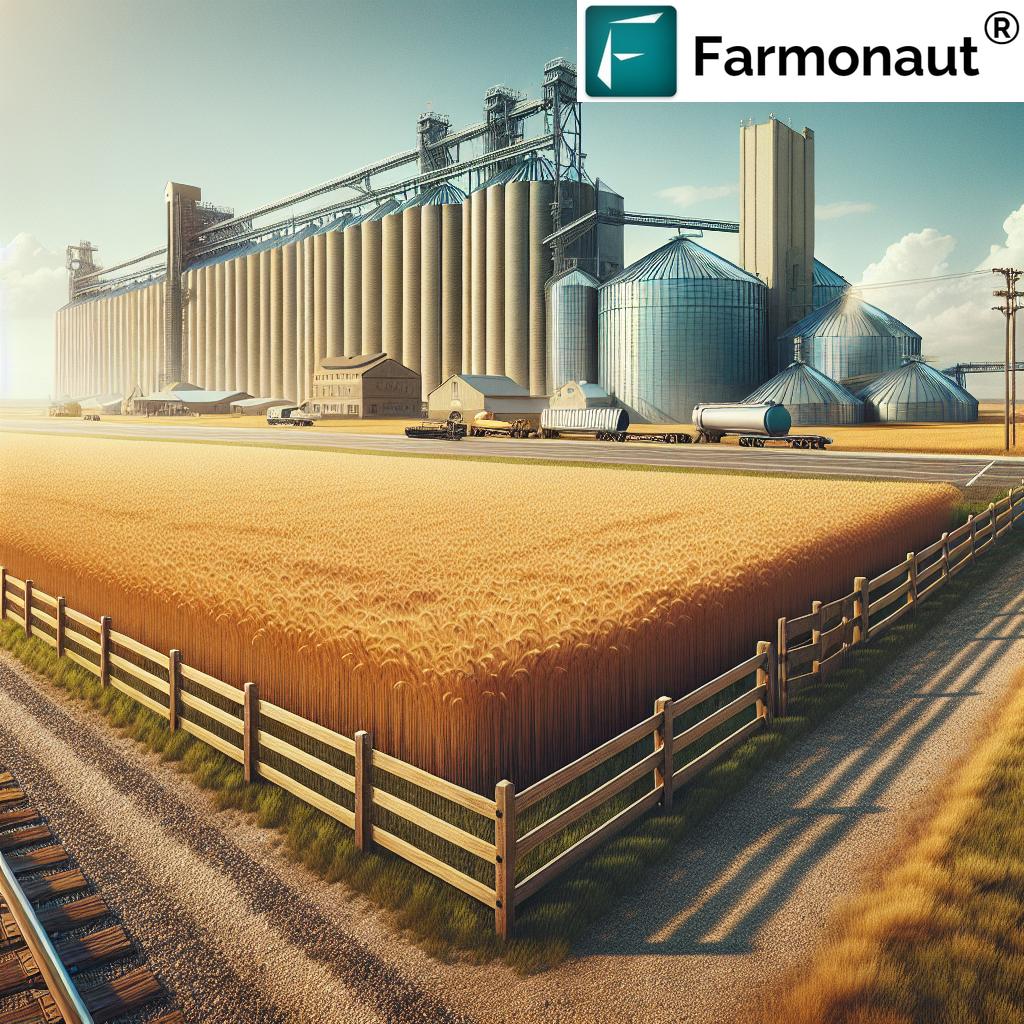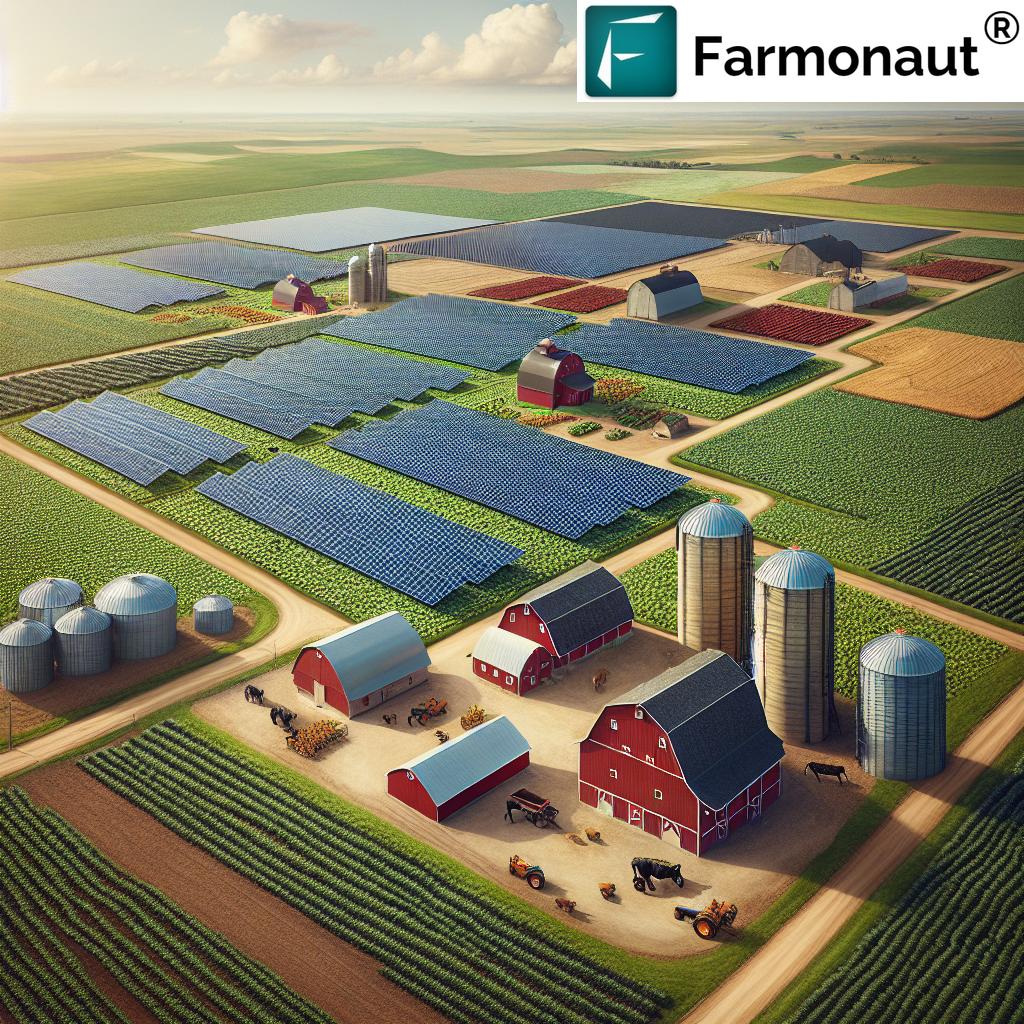Whitman County Land for Sale: Top 7 Farming Opportunities
Introduction & Summary: Land For Sale in Whitman County
Whitman County, located in the thriving agricultural region of southeastern Washington State, offers a remarkable landscape for those interested in agricultural, ranching, or forestry opportunities. With richly fertile soils, optimal climate conditions, and generations of farming traditions, it stands out as a prime location for sustainable land ownership and investment.
In this comprehensive guide, we explore land for sale in Whitman County, analyzing the availability of agricultural and forestry land, market trends, zoning regulations, and the essential conservation practices shaping land management. Aspiring buyers, investors, and farmers will discover the top 7 farming opportunities along with the sustainable strategies critical for long-term profitability and community sustainability.
Whether expanding an agribusiness, transitioning into sustainable farming, or seeking conservation-compatible investments, understanding the interplay between land availability, zoning regulations, crop suitability, and environmental considerations is essential. This resource delivers data-driven insights and actionable guidance tailored for sustainable land management in Whitman County.
Whitman County Agricultural Landscape & Land for Sale Availability
Stretching across the rolling hills and open plains of southeastern Washington, Whitman County is renowned for its expansive farmlands and thriving agriculture-based economy. Its fields are primarily characterized by highly fertile soils, which support a mosaic of crop cultivation as well as livestock operations.
Wheat is Whitman County’s signature crop, consistently making the region Washington’s top wheat producer. Complementary crops—barley, peas, and lentils—further diversify farm operations, bolstering the resilience of the local agricultural community. Cattle and sheep ranching are prevalent in various parcels, along with some rotational forestry activities and wildlife habitat conservation.
- Dominant Crops: Wheat, barley, peas, lentils
- Livestock: Cattle, sheep, and mixed pastureland
- Topography: Rolling hills, upland plains, and scenic vistas
- Annual Rainfall: Moderately low, but favorable for dryland farming
- Soil Quality: Rich, loamy, deep soils enable high-yield operations
Trends & Factors Impacting Land Availability
In recent years, Whitman County has witnessed a trend of agricultural land availability in Washington shaped by market demand, commodity prices, and the financial viability of different farming operations.
Some landowners sell portions of their acreage due to retirement, economic pressures, or succession planning, while others pursue expansion to scale up their production, taking advantage of high demand and evolving market trends.
- Land Parcels: Available in various sizes—large tracts for row crops, smaller lots for specialty uses, or rural real estate Whitman County hobby farms
- Sustainable Farming Practices Washington: Increasingly in demand as buyers seek soil health, water efficiency, and ecological conservation
- Price Influences: Farming land prices Whitman County are directly affected by commodity prices, zoning status, and proximity to local markets or transport corridors
For those interested in land for sale in Whitman County, this opens opportunities to match personal, business, or conservation goals with the region’s diverse natural resources and zoning regulations.
Top 7 Farming Opportunities in Whitman County
What Makes Whitman County Agricultural Land Attractive?
Whitman County agricultural land is highly valued thanks to its optimal climate, deep soils, and access to local and global commodity markets. Based on current land transactions, zoning, and sustainable viability, here are the top 7 agricultural opportunities for land buyers, farmers, and investors:
- Dryland Wheat Farming: The county’s cornerstone with high-yield potential and proven long-term profitability.
- Pulse Crops (Lentils & Peas): Capitalizing on market growth for plant-based protein, these crops enhance soil with nitrogen fixation and support crop rotation.
- Barley and Rotational Grains: Used for food, feed, and brewing industries, and as a key piece of sustainable soil management.
- Organic Farming Operations: Organic certification delivers premium market value and aligns with evolving consumer preferences in the Pacific Northwest.
- Cattle and Sheep Ranching: Taking advantage of large, contiguous parcels with native grassland—plus rotational grazing compatible with conservation priorities.
- Timber and Forestry Management: Forestry land for sale Washington in zones with Ponderosa pine or Douglas fir—suitable for sustainable timber harvest or mixed wildlife habitat management.
- Conservation and Riparian Buffers: Land for sale with water access or riparian habitats, eligible for state and federal conservation programs that boost property value and ecological health.
Each of these opportunities is influenced by unique factors: zoning, environmental considerations, commodity prices, and the growing interest in sustainable agricultural land availability Washington. In the next section, we present a comprehensive table comparing these seven opportunities.
Comparative Opportunities Table: Land For Sale in Whitman County
Below is a data-driven comparison of the top 7 farming opportunities in Whitman County for sustainable, profitable, and conservation-minded land acquisition.
| Opportunity | Est. Land Size (acres) | Avg. Price/Acre (USD) | Primary Soil Type | Sustainable Practice | Yield Potential | Zoning Status | Conservation Features |
|---|---|---|---|---|---|---|---|
| Dryland Wheat Farming | 200–2,000+ | $4,000–$7,500 | Loamy, silt loam | Crop rotation, precision input use | 80–110 bu/acre | Agricultural (protected) | Minimal erosion, large field buffers |
| Pulse Crops (Lentils & Peas) | 80–500 | $4,500–$8,000 | Loamy, deep alluvium | Nitrogen fixation, certified cover crops | 30–45 bu/acre | Agricultural | Pollinator habitat buffers |
| Barley & Rotational Grains | 100–1,000 | $4,200–$7,000 | Well-drained silt loam | Strip-till, rotational systems | 65–90 bu/acre | Agricultural | Seasonal wildlife strips |
| Organic Farming | 20–160 | $7,000–$12,000 | Loam, organic-matter rich | Organic certification, multi-crop rotation | Moderate (20% less than conventional, with premium) | Agricultural + organic overlay | Intensive buffers, pollinator/native plantings |
| Cattle/Sheep Ranching | 100–1,500 | $3,500–$6,000 | Native grassland, mixed loam | Rotational grazing, managed range | 1–3 AU/acre (Animal Units) | Rural/agricultural | Riparian corridors, managed wetlands |
| Timber and Forestry | 40–500 | $2,800–$6,500 | Silt loam, forested | Sustainable selective harvest, replanting | Variable — 2–8 MBF/acre (thousand board feet) | Forestry/conservation | Wildlife habitat, mixed-age stands |
| Conservation/Riparian Buffers | 5–160 | $3,500–$10,000 | Riparian, loamy wetland | Buffer planting, wildlife-friendly fencing | Not yield-focused; eligible for incentives | Conservation/agricultural overlay | Waterway protection, salmon/avian habitat |
Forestry and Timber Resources in Whitman County
Beyond row crops and ranching, Whitman County is home to valuable forestry and timber resources, especially in its northeastern and higher-elevation tracts. Forestry land for sale Washington offers surprising opportunities—timber parcels with Ponderosa pine or Douglas fir are popular for both sustainable harvest and integrated wildlife habitat management.
- Key Forestry Activities: Selective timber harvest, replanting, integrated wildlife and recreation
- Conservation-Driven: Regulations led by Washington State Department of Natural Resources ensure ecological balance and long-term economic viability
- Potential Buyers: Forestry companies, private investors, conservation trusts
Prospective buyers must consult relevant regulations prior to purchasing forested land to ensure all activities follow local and state sustainable practices.
Recommended resource:
Learn how Farmonaut’s forestry advisory tools optimize timber parcel management and conservation planning
Wildlife Habitat and Conservation:
- Riparian Buffers: Streams and waterways passing through forestry parcels are frequently managed through riparian buffers, which enhance both water quality and biodiversity.
- Managed Timber Parcels: Can receive incentives for conservation, wildlife corridors, and sustainable replanting.
- Conservation Programs for Landowners: See detailed programs below for practical implementation
Land Use, Whitman County Zoning Regulations & Local Planning
Proper understanding of Whitman County zoning regulations is pivotal for land buyers. The county’s comprehensive planning framework delineates zones for agricultural, residential, commercial, and industrial uses. Most farmland is protected by agricultural zoning to maintain food security and rural character.
- Zoning Types:
- Agricultural: Most farming parcels
- Forestry/Conservation: Timber, wildlife, and water habitat
- Rural Residential: Limited density development
- Mixed Use: Transition zones near towns
- Local Planning Department: Whitman County Planning Department provides pre-purchase zoning clarification
- Permissible Uses: Always confirm with county before finalizing transactions to prevent land use conflicts or non-compliance
- Environmental Health: Certain activities (e.g., water development, wetland modification) may require specific permits and environmental assessments
Ensuring your investment aligns with property zoning permits future expansion, supports eligibility for conservation programs, and optimizes residential or commercial value.
Economic Considerations and Market Trends for Land in Whitman County
Economic factors directly influence farming land prices Whitman County and rural real estate values.
Noteworthy trends driving the market for agricultural land:
- Commodity Prices: Wheat and other staples’ prices are a key factor in farm profitability.
- Land Transactions and Trends: Larger parcels often sell at lower price per acre, while smaller lots carry a “small parcel premium” (higher demand for hobby farmers and rural residential uses).
- Proximity to Pullman/WSU: Washington State University contributes to economic vibrancy, impacting property values and potential rent/lease opportunities for agricultural research and demonstration projects.
- Financial Viability: Operating margins, succession planning, and expansion all influence land transactions in the county.
- Surrounding Infrastructure: Transportation links, grain elevators, and access to services affect demand and values.
Tip: Use Farmonaut’s carbon footprinting and resource tracking modules to enhance your farm or land’s sustainability profile—important for both valuation and future-proofing against environmental regulations.
Environmental Considerations and Conservation Programs for Landowners
Whitman County’s natural assets—wetlands, riparian zones, upland habitats—not only enhance biodiversity but also affect property values and regulatory compliance.
Landowners are encouraged and sometimes required to adopt conservation programs that address soil health, water quality, and wildlife habitat.
- Sustainable Practices: Establish riparian buffers, reduce chemical inputs (See Farmonaut’s remote crop health monitoring for large farms), and use cover crops
- Conservation Programs for Landowners: Programs by the Washington State Conservation Commission and local districts offer technical, financial, and tax incentives for eligible activities
- Water Management: Secure water rights and follow best practices to protect downstream quality
- Buffers: Planting buffers alongside waterways promotes both ecological function and property resilience
Not only do these efforts support sustainable agriculture and forestry, but they also often increase a property’s market appeal and access to public funding.
Opportunities for New Farmers & Investors in Whitman County
The availability of land for sale in Whitman County presents a rare opening for aspiring farmers, investors, and local community members seeking new agricultural ventures or conservation investments.
Support for New Entrants:
- Washington Farmland Opportunities (see local land trust and state agency programs)
- Guidance on land acquisition and business planning
- Access to technical and financial resources
- Mentorship and peer networking in the agricultural community
- Rural Real Estate Whitman County: Expert local real estate professionals understand the nuances of agricultural land transactions
- Conservation-Focused Investment: Properties eligible for state/federal easements may provide both tax benefits and ecological impact
Farmonaut Tip: Access up-to-date parcel monitoring and resource management through our large scale farm management app for operational efficiency on new acquisitions.
Common Challenges & Key Considerations for Land Buyers
- Navigating Land Use Regulations: Purchasing land requires a clear understanding of zoning, permissible uses, and site-specific restrictions
- Water Rights & Access: Vital for irrigated farming operations—ensure clear title and compliance with state regulations
- Soil Quality and Suitability: Analyze soil type, drainage, and fertilization potential with geospatial monitoring tools
- Conservation Easements: Understand if any parcels are enrolled in such programs as they affect development potential and management obligations
- Financial Considerations: Secure financing, account for market trends, and leverage technology for cost-effective oversight
Best Practice: Engage with legal advisors, soil scientists, real estate agents, and local extension staff to conduct thorough due diligence before purchasing land in Whitman County.
Need validation for crop loans and insurance? Farmonaut offers satellite-based verification for crop loans and insurance claims—simplify approvals while ensuring transparency and risk management.
Farmonaut Technologies for Sustainable & Profitable Land Use
As the landscape of Washington farmland opportunities evolves, digital agricultural technologies are a vital tool for driving sustainability and economic viability.
At Farmonaut, we offer precision agricultural solutions that empower farmers, landowners, and agribusinesses to enhance their operations, optimize input use, and comply with sustainable farming practices Washington.
Our platform is available via web, Android, and iOS apps, and can be integrated into corporate or research workflows via robust APIs.
- Satellite-based Crop Health Monitoring: Leverage multispectral satellite data (NDVI, soil moisture, pest/disease risk) for precise resource management. Optimize yield and reduce cost/waste.
- Jeevn AI Advisory System: Get real-time weather, crop, and actionable advisory for individual fields via our personalized AI advisory service.
- Blockchain Product Traceability: See how to implement farm-to-consumer transparency in grain, livestock, and forestry supply chains with blockchain technology.
- Fleet & Resource Management: Fleet tracking for agricultural vehicles improves logistics and operational safety. Details at Fleet Management Features
- Carbon Footprinting & Compliance: Monitor, analyze, and benchmark your land’s carbon emission data seamlessly—critical for conservation and regulatory compliance.
- APIs for Developers: Plug accurate satellite, soil, and weather data into your own GIS, extension, or farm management platform: API documentation here.
Farmonaut Subscription Plans: Precision Agriculture for Every Scale
Get started with affordable precision agriculture, crop monitoring, and resource management tailored for buyers and landowners in Whitman County and all Washington farmland.
Frequently Asked Questions: Land For Sale in Whitman County & Sustainable Farming
What are the key zoning regulations to consider when buying land in Whitman County?
The majority of rural acreage is zoned “Agricultural,” strictly protecting farming and conservation uses.
Always verify with the Whitman County Planning Department—non-agricultural and residential development may be highly restricted outside cities and towns.
How do farming land prices in Whitman County compare with other agricultural regions?
Farming land prices in Whitman County are moderate compared to nearby counties, but parcels with water access, established infrastructure, or conservation value may command a premium. Smaller parcels also tend to have higher per-acre prices.
Are there conservation programs for landowners in Washington?
Yes! Washington State Conservation Commission and local conservation districts offer cost-share, tax benefits, and technical support for installing riparian buffers, pollinator habitats, and other ecologically valuable features.
What are the most viable sustainable farming practices in Whitman County?
Crop rotation, reduced tillage, cover crops, and pollinator plantings. Tech tools like Farmonaut help monitor implementation, analyze outcomes, and maintain compliance.
Can I use technology for farm management in Whitman County?
Absolutely. Tools like Farmonaut’s satellite-based crop and soil monitoring, AI advisory, carbon footprint tracking, and traceability modules are available via mobile and web; they integrate seamlessly with your business workflow for sustainable management, compliance, and profit optimization.
Conclusion: Sustainable Agriculture & Land Investment in Whitman County
Investing in land for sale in Whitman County offers not just economic opportunities, but the chance to be part of a community-led legacy of sustainable agriculture, conservation, and ecological stewardship. Buyers, farmers, and investors enjoy access to rich soils, established crop and forestry operations, and forward-looking programs dedicated to resource management and environmental health.
By embracing the best available data, responsible practices, and innovative technology solutions like those from Farmonaut (get started here), you help shape the next generation of sustainable farming practices Washington-wide.
Always start with a clear understanding of zoning, conservation needs, and market trends, and leverage precision agriculture tools to ensure long-term profitability and community benefit. Whitman County stands ready to welcome the next wave of landowners dedicated to resilience, productivity, and ecological harmony.














